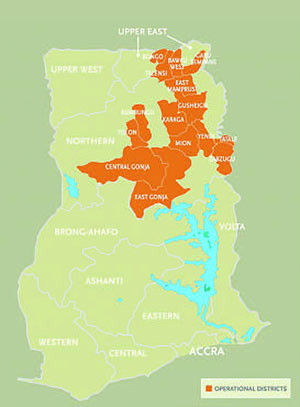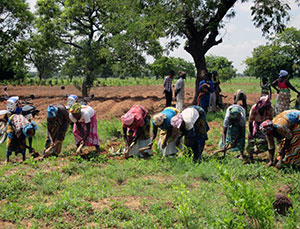Successes in Multi-Sectoral Nutrition: Sharing Lessons Learned from SPRING/Ghana
On September 7, 2017, SPRING/Ghana hosted an event to share important lessons learned and accomplishments in improving maternal and child nutrition outcomes in Ghana from 2014 to 2017. This event was chaired by the Regional Director of the Ghana Health Service for the Northern Region, Naa Dr. Jacob Y. Mahama, and the guest of honor Regional Minister for the Northern Region, the Honorable Salifu Saeed.


